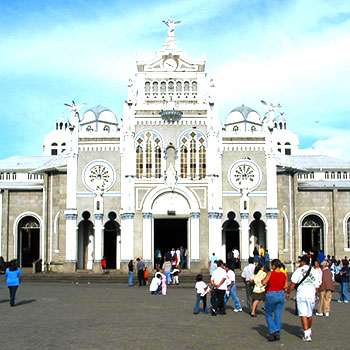ENV 3020 Marine Molecular Biology
Spanish Language, Liberal Arts & Environmental Sciences Program
San Jose, Costa Rica
Dates: 9/26/20 - 12/19/20

ENV 3020 Marine Molecular Biology
OVERVIEW
CEA CAPA Partner Institution: Veritas University
Location: San José, Costa Rica
Primary Subject Area: Marine Biology
Instruction in: English
Course Code: ENV 3020
Transcript Source: Partner Institution
Course Details: Level 300
Recommended Semester Credits: 4
Contact Hours: 60
DESCRIPTION
The use of biological-molecular tools has revolutionized research in marine sciences in recent decades. These approaches offer extraordinary potential to address ecological issues in the marine environment, ranging from species identification and deciphering reproductive behaviors to understanding the population structure and genetic connectivity among populations. This course focuses on the use of molecular markers based on mitochondrial and nuclear DNA to highlight the importance of conservation genetics and the implications on a global scale to manage marine species in danger of extinction. Activities and conferences will be carried out at the Center for International Programs and Sustainability and the Molecular Biology Laboratory (BIOMOL).
In addition, students will experience field activities to understand some controversial conservation issues related to the endangered trapezoidal marine species in Costa Rica, such as sea turtles and sharks, gathering tissue samples and later performing hands-on activities in the laboratory such as DNA extractions, PCRs, electrophoresis. Along the course students will learn to perform bioinformatics analysis from DNA sequence chromatogram reviewing and genetic database searching to genetic identification. Some analysis will beperformed to understand the genetic diversity and gene flow of natural populations of endangered marine species in Costa Rica.
In addition, students will experience field activities to understand some controversial conservation issues related to the endangered trapezoidal marine species in Costa Rica, such as sea turtles and sharks, gathering tissue samples and later performing hands-on activities in the laboratory such as DNA extractions, PCRs, electrophoresis. Along the course students will learn to perform bioinformatics analysis from DNA sequence chromatogram reviewing and genetic database searching to genetic identification. Some analysis will beperformed to understand the genetic diversity and gene flow of natural populations of endangered marine species in Costa Rica.









